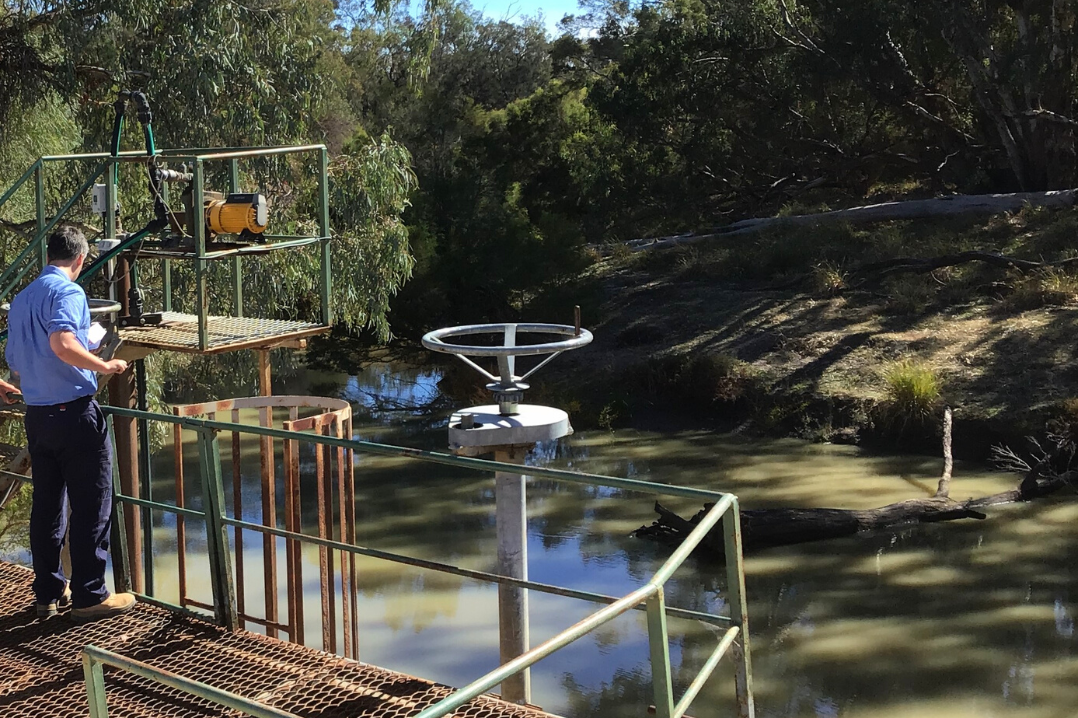NRAR’s latest figures confirm most common water offences
Offences related to taking too much water or not having a compliant water meter remain the most common issues dealt with by the Natural Resources Access Regulator (NRAR).
The state-wide figures for July to December 2022 show more than half of alleged water law offences uncovered were for illegal water take or metering breaches. The next most common offence was unlawful actions on waterfront land (controlled activities), which accounted for 21% of offences committed during the period.
Director Regulatory Initiatives, Ian Bernard, said NRAR had more than doubled its compliance inspections across NSW during spring and summer, including by desktop audits and by on-site visits,” Mr Bernard said.
“Widespread flooding has been very challenging for lots of people and of course we take that into account,” he said.
"But the more inspections we do, the more opportunity there is to meet with landholders to help them get into compliance and avoid penalties”
"There's an old saying that prevention is better than cure – and that’s the outcome NRAR is trying to achieve – proactively protecting water resources for the benefit of communities, culture, the environment and industry."
NRAR is committed to publishing its compliance activities each quarter to increase public trust in the system.
NRAR’s Quarterly Reporting tool shows that between July and December 2022 there were 325 alleged compliance offences recorded across NSW, with the top three offence types being:
- illegal water take and metering breaches - 167 instances (51%)
- controlled activities – 69 instances (21%)
- unlawful works and dams 57 instances (17%).
The tool also breaks offence types down by region so people can see how compliant local water users are and compare this with compliance in other parts of NSW. Illegal water take and metering were a high proportion of alleged offences in the following water sharing plan areas:
TABLE: Proportion of alleged offences related to illegal water take or metering breaches by water sharing region.
Water sharing region | Total alleged offences Jul-Sept (Q3) | Total alleged offences Oct-Dec (Q4) | July to September (Q3) alleged offences related to illegal water take or metering breaches | October to December (Q4) alleged offences related to illegal water take or metering breaches |
|---|---|---|---|---|
Namoi | 18 | 27 | 78% of offences | 85% of offences |
Barwon, Darling and West | 17 | 28 | 76% of offences | 75 % of offences |
Murray | 25 | 9 | 76% of offences | 78% of offences |
Border Rivers | 12 | 8 | 91% of offences | 62% of offences |
Gwydir | 7 | 10 | 43% of offences | 90% of offences |
Mr Bernard, said the latest data supported NRAR’s decision to focus on water metering and the regulatory priorities for this fiscal year.
"The non-urban water metering reform is one of the most significant changes to water management in NSW in the last few decades, and its vital landholders don’t leave it to the last minute to comply,” Mr Bernard said.
To ensure they avoid penalties, water users must install a compliant meter by the deadline for their area where required.
The NSW Government has extended the metering compliance deadline by 6 months for the Southern Inland of NSW and by 12 months for Coastal NSW to give water users a reprieve as they deal with the aftermath of widespread flooding.
The new compliance dates are 1 June 2023 for the southern inland and 1 December 2024 for coastal areas.
View NRAR’s regional compliance breakdowns to see how your area compares.
